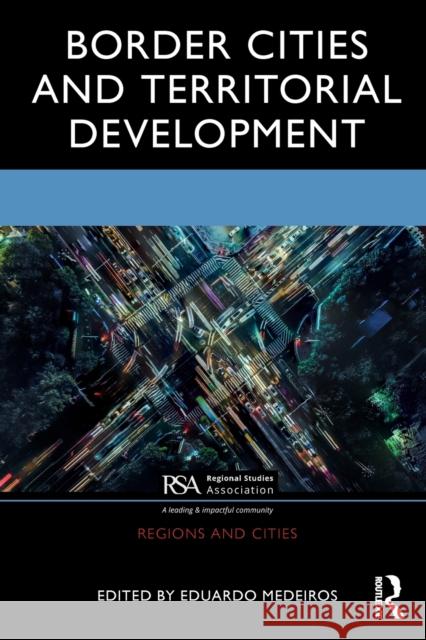Border Cities and Territorial Development » książka
Border Cities and Territorial Development
ISBN-13: 9780367759445 / Angielski
Border Cities and Territorial Development
ISBN-13: 9780367759445 / Angielski
(netto: 206,17 VAT: 5%)
Najniższa cena z 30 dni: 196,40
ok. 30 dni roboczych.
Darmowa dostawa!
This monograph analyses the role of border cities in promoting territorial development processes in border regions across the world. It not only embraces the scientific fields of regional and urban studies but also addresses territorial (urban, local, regional) development and planning theories, as well as the effects of development policies applied to border regions in both Europe and North America.In essence, the book offers a full toolkit of border regions' territorial development knowledge and, in particular, advances a range of policy development proposals. It provides a comprehensive introduction to contemporary thinking about how border cities can play a decisive role in boosting territorial development processes in border regions. The book is divided into three parts. Part I presents a theoretical framework on the role of border cities in promoting territorial development and planning in border regions. Part II debates current mainstream policies focusing on supporting border regions and specifically border cities in the EU, the UK, and North America. Finally, Part III presents a wealth of updated knowledge, based on the analysis of several concrete case studies: border cities from both Europe (north, south, east and west) and North America (Canada, the United States, and Mexico). The chapters are written by some of the most renowned authors on the subject, including scholars from several European and North American countries, as well as the secretary generals of three European border regions associations (AEBR, MOT, and CESCI). The book will thoroughly prepare students and provide knowledge to academics and policymakers in the fields of urban and regional planning and development studies, human geography, economic development, EU policies, border regions, and policy impacts.
This monograph analyses the role of border cities in promoting territorial development processes in border regions across the world. It not only embraces the scientific fields of regional and urban studies but also addresses territorial (urban, local, regional) development and planning theories, as well as the effects of development policies applied to border regions in both Europe and North America.
In essence, the book offers a full toolkit of border regions' territorial development knowledge and, in particular, advances a range of policy development proposals. It provides a comprehensive introduction to contemporary thinking about how border cities can play a decisive role in boosting territorial development processes in border regions.
The book is divided into three parts. Part I presents a theoretical framework on the role of border cities in promoting territorial development and planning in border regions. Part II debates current mainstream policies focusing on supporting border regions and specifically border cities in the EU, the UK, and North America. Finally, Part III presents a wealth of updated knowledge, based on the analysis of several concrete case studies: border cities from both Europe (north, south, east and west) and North America (Canada, the United States, and Mexico). The chapters are written by some of the most renowned authors on the subject, including scholars from several European and North American countries, as well as the secretary generals of three European border regions associations (AEBR, MOT, and CESCI).
The book will thoroughly prepare students and provide knowledge to academics and policymakers in the fields of urban and regional planning and development studies, human geography, economic development, EU policies, border regions, and policy impacts.











